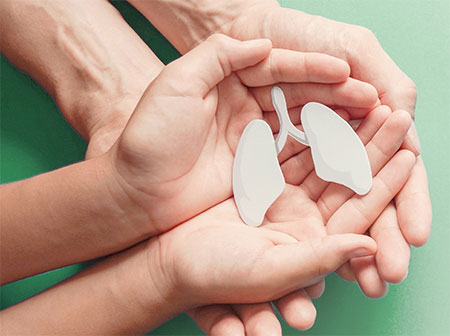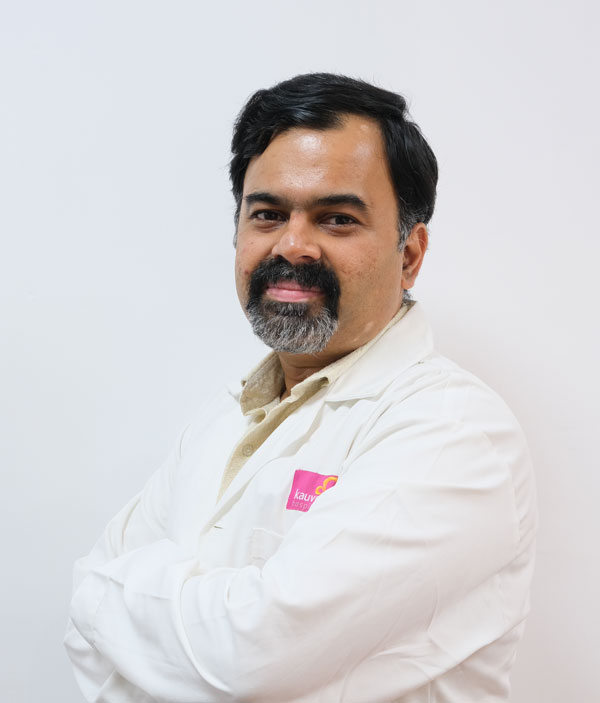Looking After Our Lungs
Our lungs grow like a tree, branching from day 22 of conception onwards, from both the developing gut layers as well the surrounding tissues (mesoderm).

Inside the womb, our lungs are filled with fluid and oxygen is carried from the mother’s blood. Critical development of air sacs starts from the 32nd week of gestation only and reaches maturity in the last few weeks inside the womb. More importantly, the number of air sacs increases by 400% after birth till the teenage years and peak lung function is achieved by the end of the second decade only. Any process affecting lung development during this period (by parental smoking, indoor biomass cooking, childhood pneumonia, etc.) can have important effects in later life. Still it is not immediately apparent due to patients themselves.
Our lungs transport oxygen to the blood from air and transport carbon dioxide produced by cells during metabolism away from the blood into the exhaled air every minute. Failure to do this for more than a few minutes leads to death. Pumping of the heart serves to move this oxygen-rich blood to tissues but is ineffective if there is less oxygen in the blood due to lung disease. Besides this crucial role, the lungs make it possible for us to speak, convert important hormones involved in blood pressure control, control acid-base balance, act as a filter for chemicals in blood and protect us against air-borne infections.
We have to take care of our lungs by not smoking, avoiding people who smoke and creating a “no smoking zone” around our children. We have to protect ourselves from both indoor and outdoor pollution. Wearing an appropriate mask correctly, social distancing and hand hygiene have become important after COVID but this is also equally relevant when there are other circulating respiratory infections like influenza during the rainy season. This can also protect us from other infections like tuberculosis. Vaccinations for pneumonia and yearly vaccination for influenza can protect vulnerable people (children, elderly and those with cardiac and respiratory disease) from worsening illness and pneumonia. Doing cardiopulmonary exercises every day improves immunity and keeps the lungs healthy. It is important to eat a balanced diet to promote lung health. Most individuals with lung disease, including asthmatics are NOT worsened by dietary habits and it is important not to avoid crucial dietary components without discussing with your doctor. People engaged in work with exposure that can cause lung disease (quarry workers, miners, chemicals, construction workers) and those with indoor birds as pets must periodically screen themselves with their pulmonologist to look for lung disease.
Our lungs have a large reserve and early disease does not cause symptoms. It is important to evaluate cough, sputum, wheeze, breathlessness, chest pain, blood in sputum and snoring as these indicate cardiopulmonary disease. Crucially, there is no disease called “sputum” or “challi”; this is a symptom of lung disease. Finding the correct cause leads to cure or control of the disease.
While it is important to be blessed with good lungs during life, we don’t need them after death. Lung transplantation is increasingly being done in India and Kauvery Hospital, Chennai has an in-house holistic Heart & Lung Transplant Program. Our lungs can be donated to another with irreversibly damaged lungs and we can give them a second opportunity at a normal and productive life with their loved ones. Let us all take a pledge to protect our lungs during our life and pass on our precious lungs after our time to another in need.

Dr. Srinivas Rajagopala
Medical Director, Lung Transplant & Advanced Lung Diseases
Senior Consultant, Interventional Pulmonology & Sleep Medicine
Kauvery Hospital, Chennai

